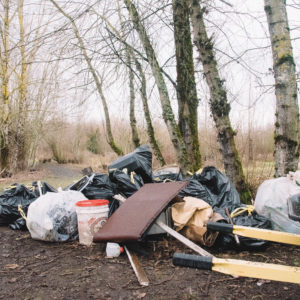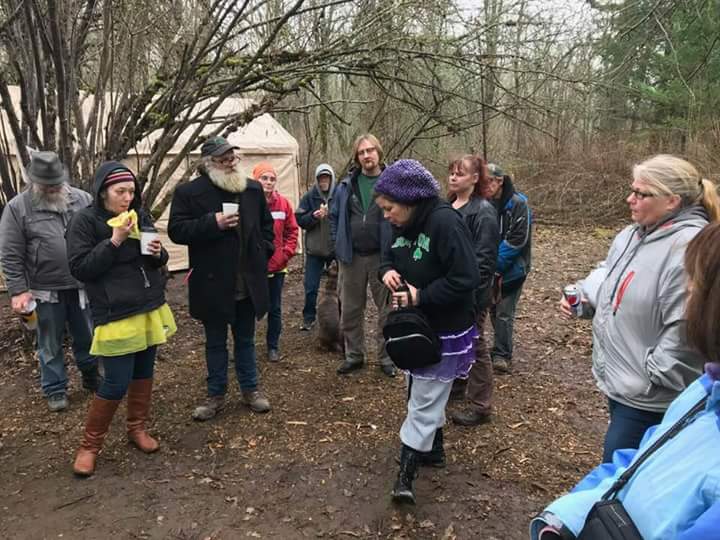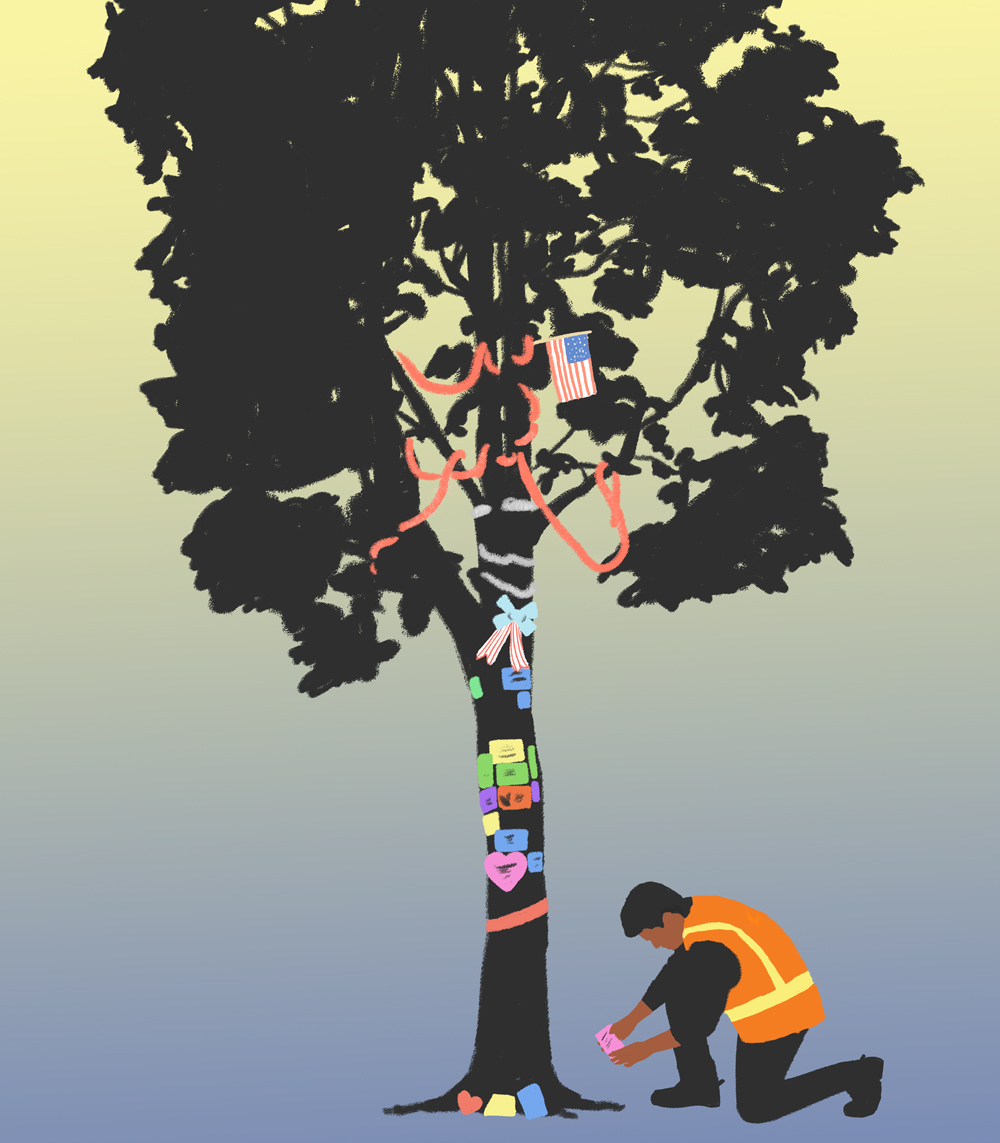Village of Hope, Portland’s newest self-managed houseless community, opened and shut within five days this week. Nestled inside a thicket of trees and meandering trails along the Columbia River Slough in Northeast Portland, the camp was cleared out by city officials on Friday, Feb. 2.
The camp held an opening celebration on the afternoon of Monday, Jan. 29 following weeks of secret planning by volunteers across Portland.
That day, half a dozen bright red heart balloons attached to a vehicle gate flapped in the wind. Between the roar of semi trucks and planes flying overhead in and out of Portland International Airport, birds chirped in the trees.
A homemade path of fresh bark dust and pine needles led to a bright blue door.
“People keep wanting to open this,” said organizer Steve Kimes while he tried to shut the door and prop it back up. “It’s supposed to symbolize a couple things. One, that this is a welcoming environment and two, this is our home—don’t come in and mess it up.”
Originally, the village was dubbed Protest Camp. Organizers, unafraid of arrest, vowed to stay on the property and protest in the event the City of Portland attempted to sweep the area.
Organizers said in a statement that local officials “are making progress [combatting houselessness], but many people continue to fall between the cracks.” The statement added, “Their shelter development processes have engendered intense neighborhood conflicts and come with huge price tags.”
One day after the opening celebration, Portland Mayor Ted Wheeler expressed his disapproval of the village. “This kind of unilateral action undercuts the efforts of government, nonprofits, and the private sector partners who are aligned on a solution,” Wheeler said in a statement.
According to The Portland Mercury, Village of Hope was constructed on land called the Big Four Corners natural area, which is owned by Portland Parks and Recreation. Deer, coyotes, river otters and 175 bird species habitate the area.
“The outright appropriation of environmentally sensitive public lands, intended for the use of everyone, is unacceptable,” Wheeler stated. “Rigid structures should not be constructed on lands the public has invested in heavily to preserve.”
However, Village organizers argue that since houseless people camp in the area all the time, the environment is better protected with consistent trash pick up and monitoring by volunteer security and site managers.
Village of Hope is not the first of its kind. Other self-managed camps such as Right 2 Dream Too and Dignity Village have sprung up across the city over the last few years.
Along an elongated streamside clearing sat large tents on handmade wooden platforms. “The tents are 7 foot by 9, and the platforms are 8 by 12, so everything you own can be placed in the tent or on the platform,” Kimes said. “We wanted [to make] the lowest impact on the environment.”
At the end of the camp, volunteers and passers-by gathered to chat in a makeshift kitchen and community room. Barbara Hood usually volunteers to supply folks in need with clothing, but on Monday, her focus was bringing those in need to take showers. “Can you imagine not being able to bathe for a month at a time?” Hood asked.
“[We’re trying to provide] a secure place to make services more accessible,” Kimes said. “Unless there’s stability, there’s no way of getting [the houseless] off the street.”
Kimes said he would not speculate about the future of the village or the possibility of it getting shut down. Rather, Kimes wanted to focus on providing security for those who need it.
By mid-week, Village of Hope received multiple eviction notices. Almost immediately, activists across social media summoned supporters to surround the property and protest Friday’s impending sweep.
Read Part Two of Vanguard’s Village of Hope Series: “Keeping hope alive: The Eviction.“













